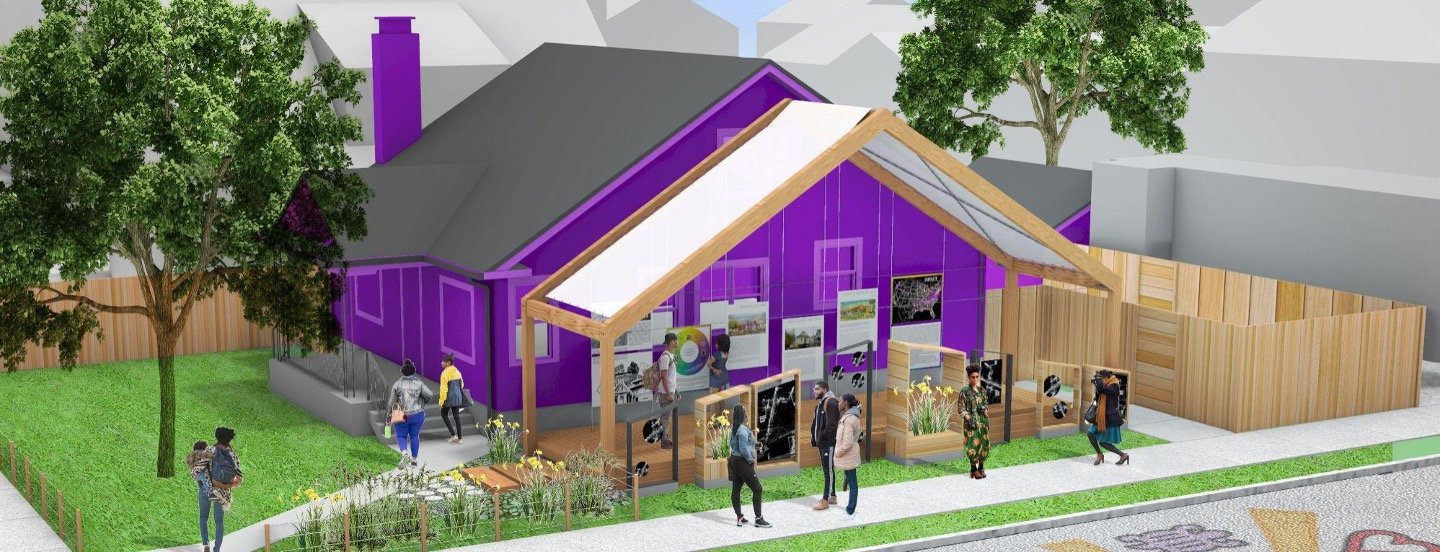Learning Hubs
The Learning Hubs are spaces of Black educational excellence, working cooperatively toward the well-being of Black youth. Each of the hubs supports economic resiliency and works together as a new model for an educational ecosystem driven by family values.
The collaboration of these organizations prioritizes Black youth and facilitates our growth as an open, collective ecosystem within which our community can reflect, modify, and adjust as the process unfolds.
-

BSTRONG Learning Hub
BSTRONG Learning Hub works towards Spatial and Environmental Justice by building an understanding of the history of past injustice and envisioning a liberated sustainable future.
-

Mayo House ARTchive
The Mayo House ARTchive is a space for Collective Memory and recording an accurate story of the Portland Black history.
-

Feed'em Freedom Farm Hub
The Feed'em Freedom Farm Hub advances Food Justice through its intergenerational community-based food pantry, and educational center that reconnects our youth to the agricultural roots of the Black community.
How will this happen?
In order to restitch the fabric of our community and establish an authentic place of learning that sustains our cultural and ecological resources, the Learning Hubs seek to expand our Black student support initiatives through the physical space of community-based hubs. Envisioned as an educational network across the Albina neighborhood these projects must be developed concurrently in order to provide enough physical space to meet the needs of our growing youth cohorts.
Why is this important?
Noni said, “I have lived in my childhood home for more than 60 years, and I want to invest in our youth”.
Historically, the Albina neighborhood has been the heart of Black life in Portland, Oregon. Albina is a neighborhood defined not by street borders and landmarks but by its network of Black community members. From being pushed to what is now the Pearl District by the flooding of Vanport, to being pushed to what is now the Rose Quarter by “urban renewal” projects, to being pushed further and further north by “reinvestment,” Albina continues to hold on to its historical roots through community resiliency.
Today, the cultural and environmental fabric of Albinas Black community has become frayed as reinvestment without regard for the original community (once again) pushes out Black residents, continuing the cycle of harm through racist policies and practices.
Who is this for?
Success for the Learning Hubs looks like a village community that is not only culturally connected but woven together as a living demonstration site for Black-led education working at the intersection of racial and environmental justice. As we envision Black space in environmental education, we see a location of radical openness and the possibility to articulate our connection to the world. In program evaluations, our students report feeling confident and ready to engage in the world after high school, having been supported and prepared in a way that is sensitive to their history and supportive of their unique needs and identities.
The ripple effects of what is taught, learned, and shared have a positive impact on the entire surrounding community, Black and non-Black. This community includes neighbors, event partners and participants, and project supporters of diverse racial and ethnic backgrounds.
